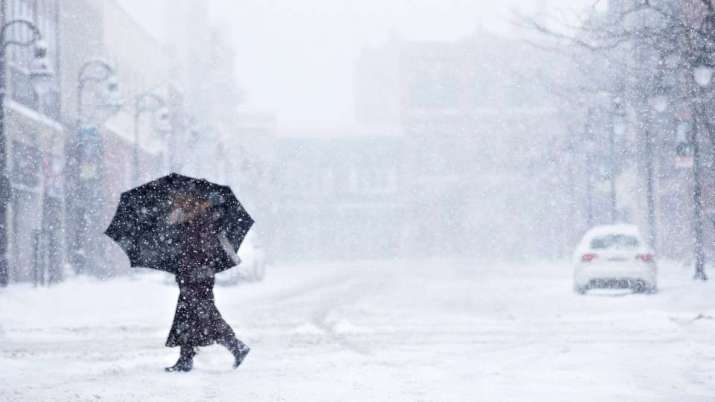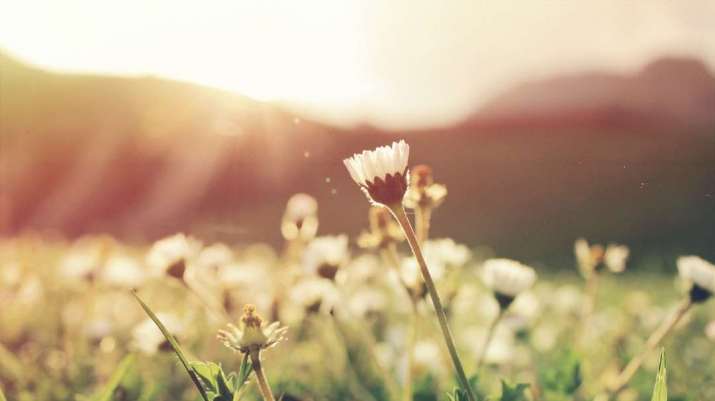FEATURES|COLUMNS|Academic Reflections
An Ode to the Canadian Winter
 From ctvnews.ca
From ctvnews.caCanadian winters can be intimidating. Our snow-covered landscapes and seemingly impossible temperatures are incomprehensible to those unfamiliar with them. Each time I leave this country for someplace warmer, I am met with incredulity when the topic arises. People ask, how can you possibly survive over here? Do people still live in igloos in your country?
Every country has its reputation and I suppose being associated with igloos is not the worst that can happen. And truth be told, our winters are the stuff of legend. We face biting snowstorms that cover our cities with sheets of ice like jagged blankets. We sprinkle our walkways with salt before we step, and we all keep shovels in our cars lest a blizzard overtake us while we are at work. Sometimes, a storm will defy even our hardiness. Weather warnings are issued on every station, schools are shut down (an official “snow day!”), and children squeal with delight at the prospect of an unscheduled day off.
Some Canadians know how to appreciate the season. They invest in winter sports equipment and enjoy the fresh sunshine of a clear winter’s day. They bundle up and brace against the cold with a fortitude only those from northern latitudes know how to conjure. When the adventures are done, they come back inside, unzip their parkas, and sip hot chocolate by a fire. It’s the best way to love this season. But when you are working in the city, far from a cozy fireplace, and are moving around trying to get things done, winter can be sluggish and frustrating. Roads are unsafe, potholes are many, and walking is treacherous. Canadian winter is not an easy season to navigate.
And yet, despite the many hazards this season presents, Canadians would not be themselves without it. Whenever a Canadian moves away from this land, they always say the same thing: they miss the changing of the seasons, the dramatic shifts from one kind of weather to the next. They miss experiencing the cycle of change, because it brings lessons every single time.
Every summer, I look at the lush greenery our humidity produces and wonder how all of it can possibly disappear. I try to visualize the white emptiness that I know will come, but I never seem to believe it. I can’t imagine all the green disappearing, and yet every year . . . it does. And then when I find myself looking at a barren winter landscape, the same question arises: will life actually return? Will the city ever become green again? When one has been fighting off icicles for endless months, the prospect of springtime seems unrealistic. Each year, there is death and rebirth in the seasons. And each year, I am incredulous, only to be surprised all over again.
It seems strange to me that I have lived in this country all my life, I’ve watched the seasons come and go so many times, and yet still I struggle to truly believe that the next season is on its way. I wonder if the haiku poets felt the same way about the cherry blossoms? Did it seem improbable every time? Perhaps I am just stubborn (actually, I know I am!), but given the wealth of poetry dedicated to the changing of the seasons, I’m obviously not alone in being perpetually surprised.
 From unsplash.com
From unsplash.comChange can be a difficult reality for us to wrap our minds around, no matter how regularly it occurs. I guess we are delusional creatures, refusing to accept change despite the fact that it keeps happening. And yet, no one really wants permanence. No one wants a winter that never gives way to spring, so why is it so difficult to accept?
The answer to that question is simple: we don’t want permanence of the bad things; only permanence of the good. And yet, that doesn’t make sense either. Even I can’t imagine permanent chocolate ice cream on my plate. Permanence is a nightmare when you think about it. But I suppose we don’t think about it. We just want what we want, despite the fact that we almost never get it. According to the Buddha, that is the very definition of suffering.
Winter is a difficult season to accept. The cold, the slush, the ice—it isn’t always pretty and it’s certainly difficult to navigate when you are in a rush. But if we let go of wanting, if we stop chasing the greenery on the other side of the fence, we may find something precious right where we are. Winter may be frigid here in Canada, but it is also deeply still. There is something profoundly silent about winter—as though it is calling all of us to hibernate, to become quiet, to stop running. It calls us to a contemplative place where sound is muffled under a blanket of white. It is a time of deep waters, and it is missed when the energy of spring wakes us again.
Related features from Buddhistdoor Global
Seamless Stitches: From Emptiness, Springs Form – Helene Rein's Crafted Works
Meaning in the Face of Transience: Reflections of Socially Engaged Buddhists in Japan
The Big Uncertainty
Expressions of Emptiness: The Paintings and Sculptures of Yoshio Ikezaki














